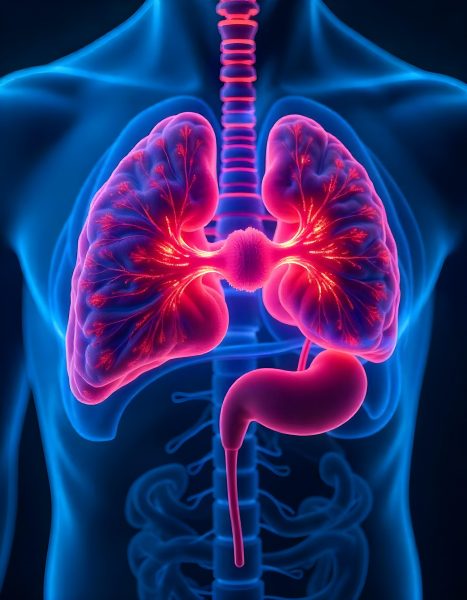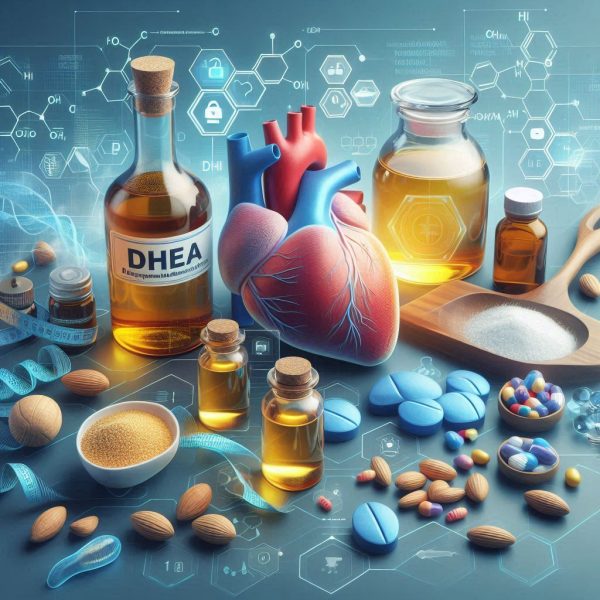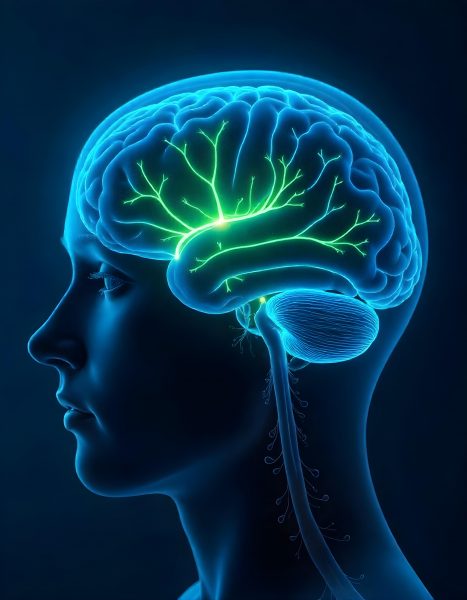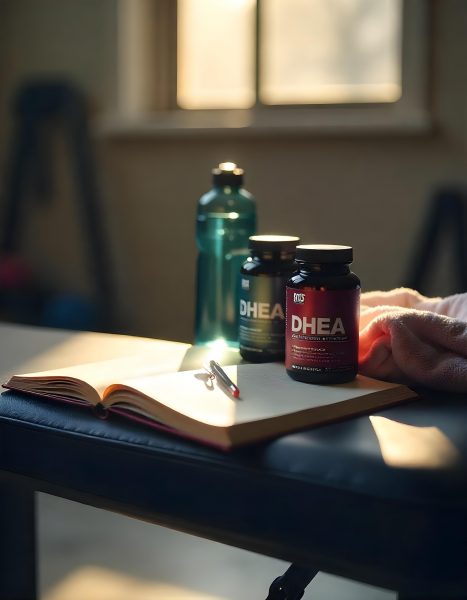
When it comes to health and wellness, many focus on the usual suspects—vitamins, minerals, and macronutrients like protein, carbs, and fats. But there’s another crucial player in the mix that often flies under the radar: DHEA (dehydroepiandrosterone). This lesser-known hormone plays a vital role in numerous bodily functions and can be a game-changer for your health. But what exactly is DHEA, where can you get it, and how does it benefit your body? Let’s dive deep into this essential hormone and uncover its importance.
DHEA, short for dehydroepiandrosterone, is a hormone produced primarily by your adrenal glands. These are the small, triangular glands located on top of your kidneys, responsible for producing several key hormones like cortisol, adrenaline, and DHEA. In fact, DHEA is the most abundant circulating steroid hormone in the human body.
DHEA serves as a precursor to both male and female sex hormones—testosterone and estrogen. In other words, your body converts DHEA into these essential hormones based on its needs. This makes it a critical component of hormone balance and overall health.
Interestingly, your body produces the most DHEA during your mid-20s, after which production begins to decline steadily. By the time you reach your 70s, your DHEA levels could be as much as 80-90% lower than when you were in your prime. This decline is a natural part of aging, but research suggests that maintaining healthy DHEA levels can support several aspects of well-being, which we'll explore shortly.

DHEA is produced naturally by the adrenal glands, but smaller amounts are also synthesized in the brain, skin, and other tissues. It's important to note that although DHEA can be found in certain foods, the quantities are minimal, and food alone isn’t a reliable source for boosting your levels.
For those looking to supplement their DHEA, the hormone is available in various forms over the counter in many countries, including the United States. You can find DHEA supplements in tablets, capsules, creams, or even sublingual forms. However, because DHEA is a hormone, it’s wise to consult with a healthcare professional before starting supplementation to ensure you’re using the correct dose and form for your body’s needs.

DHEA may not be as well-known as some other hormones, but its benefits are wide-reaching and significant. Here’s a breakdown of some of the most important ways DHEA can impact your body and overall health:
As mentioned, DHEA is a precursor to sex hormones like estrogen and testosterone. This means it plays a critical role in maintaining a healthy hormonal balance, which affects everything from mood and energy levels to libido and reproductive health.
In women, DHEA supplementation has been shown to help with menopausal symptoms, such as hot flashes, mood swings, and vaginal dryness, by increasing estrogen levels. For men, it can support testosterone production, which can naturally decline with age. Maintaining balanced testosterone levels is crucial for muscle mass, energy, and even mental sharpness.

Brain health is another area where DHEA shines. Some studies suggest that DHEA can improve cognitive function, particularly in older adults. Because DHEA levels decline with age, this may help explain why cognitive performance also tends to dip as we get older.
There’s also evidence that DHEA may play a role in neuroprotection. It’s been shown to have antioxidant properties, which can help shield brain cells from oxidative stress and inflammation—two processes closely linked with neurodegenerative diseases like Alzheimer’s.

DHEA’s influence on mood is one of its most well-documented benefits. Research suggests that DHEA can have a positive impact on mood, particularly in individuals dealing with depression. Several studies have shown that DHEA supplementation can lead to a significant reduction in symptoms of depression, especially in those with mild to moderate cases.
One possible explanation is DHEA’s role in modulating cortisol, the body’s primary stress hormone. Elevated cortisol levels can wreak havoc on mood and mental health, contributing to anxiety, depression, and sleep issues. By counteracting cortisol’s effects, DHEA may help promote emotional balance and resilience to stress.

Aging is an inevitable process, but DHEA may help slow down some of its undesirable effects. Because DHEA is involved in several vital processes—including immune function, bone density, and skin health—it’s no surprise that maintaining adequate DHEA levels is associated with healthier aging.
For example, research suggests that DHEA can help prevent bone loss and maintain bone density, making it a potentially useful supplement for preventing osteoporosis in postmenopausal women and older men. Furthermore, DHEA’s antioxidant properties can help reduce the oxidative damage that contributes to the aging process, helping you look and feel younger for longer.

Your immune system relies on a delicate balance of hormones and nutrients to function optimally, and DHEA is a key player in that equation. Studies show that DHEA can help bolster immune function, particularly in older adults whose immune systems may be weakened due to age-related hormonal declines.
One mechanism through which DHEA supports immunity is by balancing cortisol levels. While short-term cortisol spikes are helpful in fighting infections, chronically elevated cortisol can suppress the immune system and leave the body more vulnerable to illness. By helping to regulate cortisol, DHEA keeps the immune system functioning efficiently, especially under stress.

It’s no secret that sex hormone levels decline with age, and this can often lead to reduced libido and sexual function. For both men and women, DHEA plays an essential role in maintaining sexual health.
In men, DHEA supplementation can help restore declining testosterone levels, which can positively impact libido, erectile function, and overall vitality. In women, DHEA has been shown to improve sexual function by boosting estrogen levels and addressing vaginal dryness—a common issue during menopause that can lead to discomfort during intercourse.

DHEA’s influence on body composition is another key benefit worth mentioning. Because it supports the production of testosterone and other hormones involved in metabolism, DHEA supplementation may help promote fat loss while preserving lean muscle mass. Some research suggests that DHEA can improve insulin sensitivity and reduce abdominal fat in both men and women.
For athletes and fitness enthusiasts, maintaining optimal DHEA levels can support endurance, muscle recovery, and overall physical performance.

If you’re interested in supplementing with DHEA, it’s important to approach it with care. Hormone supplementation is not something to take lightly, and while DHEA is available over the counter, that doesn’t mean it’s right for everyone.
Here are a few key tips for safe DHEA supplementation:

DHEA may not have the name recognition of other supplements, but its impact on your health is undeniable. From supporting cognitive function and mood to enhancing immune health, sexual vitality, and muscle mass, this hormone is essential for maintaining overall well-being as you age. If you suspect your DHEA levels are low or want to explore the benefits of supplementation, consult with your healthcare provider to determine the best approach for your needs.

====================
Recommended Product